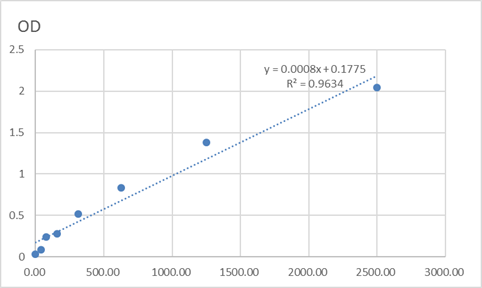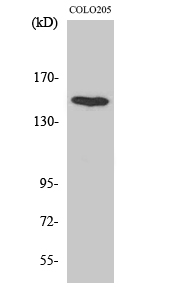Total MAP4K6 Cell-Based Colorimetric ELISA Kit
- 货号:KA4370C
- 应用:ELISA
- 种属:Human;Mouse
- 其他名称:
- Misshapen-like kinase 1 (EC 2.7.11.1) (GCK family kinase MiNK) (MAPK/ERK kinase kinase kinase 6) (MEK kinase kinase 6) (MEKKK 6) (Misshapen/NIK-related kinase) (Mitogen-activated protein kinase kinase kinase kinase 6)
- 背景:
- catalytic activity:ATP + a protein = ADP + a phosphoprotein.,cofactor:Magnesium.,function:Serine/threonine kinase that may play a role in the response to environmental stress. Appears to act upstream of the JUN N-terminal pathway. May play a role in the development of the brain.,similarity:Belongs to the protein kinase superfamily.,similarity:Belongs to the protein kinase superfamily. STE Ser/Thr protein kinase family. STE20 subfamily.,similarity:Contains 1 CNH domain.,similarity:Contains 1 protein kinase domain.,tissue specificity:Expressed in the brain, isoform 2 is more abundant than isoform 1.,
- 功能:
- MAPKKK cascade, cell activation, immune system development, leukocyte differentiation, protein amino acid phosphorylation, phosphorus metabolic process, phosphate metabolic process, intracellular signaling cascade, protein kinase cascade, JNK cascade, phosphorylation, hemopoiesis, lymphocyte differentiation, T cell differentiation, stress-activated protein kinase signaling pathway, T cell differentiation in the thymus, cellular response to stress, T cell activation, negative T cell selection, T cell selection, negative thymic T cell selection, thymic T cell selection, leukocyte activation, lymphocyte activation, hemopoietic or lymphoid organ development,
- 细胞定位:
- Cytoplasm . Cell junction, synapse, postsynaptic density . Cell projection, axon . Cell projection, dendrite .; [Isoform 4]: Golgi apparatus.
- 组织表达:
- Expressed in the brain, isoform 2 is more abundant than isoform 1. Isoform 3 is ubiquitously expressed. Isoform 1 is most abundant in the skeletal muscle. Isoform 4 is ubiquitously expressed with relative high levels in brain, skeletal muscle, pancreas and testis.


